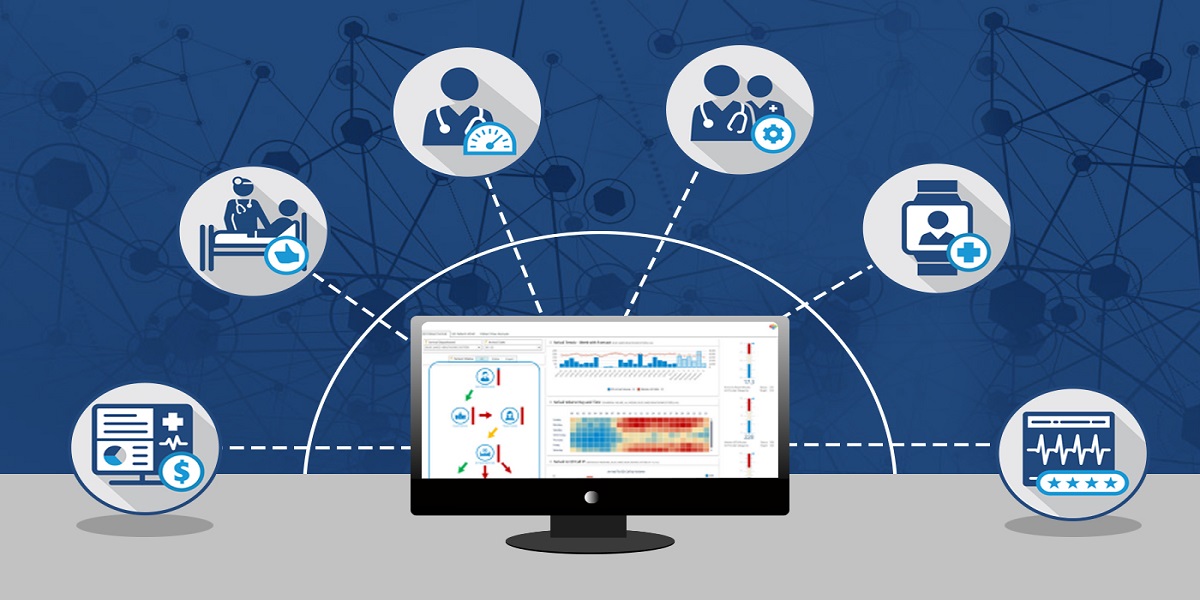
How Data Analytics Is Driving Efficiency In Healthcare
- By Immanuel Navinchandran
- 22-09-2021
- Technology
Data analytics provides the competitive edge to lead any industry in the new digital competition age. Every enterprise today is after data and analytics to empower their marketing teams and build new services. While advanced data analytics had created inroads for many businesses, its healthcare is now trying to reap the benefits.
However, this will require a significant makeover of present systems, applications, software, etc.; thereby, any healthcare business will be required to use new plans, tactics, and tools. Grand View Research Inc study stated that the global healthcare analytics market size was estimated at USD 7 billion back in 2016 and is anticipated to grow to USD 53 billion in the next four years.
The shift from a fee-for-service model is a crucial indicator for this change. A physician earns rewards for the total number of services provided for a significant value-based model. The focus on a more value-based model challenges providers to bet on a data analytics approach to help determine and deliver clinical and financial goals. The perfect process would empower providers to strengthen their services, surrounding patient-centric care, predictive care, cost analysis, clinical quality, and readmission rate reduction.
Not many healthcare providers use the latest and full-fledged analytics. In order to achieve the significant shift, healthcare providers need to embrace and apply data analytics. A couple of challenges that overpower them are interoperability and siloed data. Be it EHR, EDI, or Clinical Data, they heavily rely on HL7 standards when it melts down to transferring administrative and clinical data between software applications.
On the flip side, HL7 is responsible for bringing interoperability and data availability into radar and stalls the immediate results for providers. In other words, transferring accurate and relevant information happens only when the compliance is met. The right solution would be the data virtualization platform to integrate all the data sources without significant disruption seamlessly.
Data can be easily analyzed when the silos are excluded and provide actionable insights for healthcare businesses.
- Benefits of Data Analytics in Healthcare
- There are many benefits of data analytics in healthcare; here is a few that top the list:
- Elimination of fraud and abuse
- Claims can be analyzed and processed quickly
- Ananolmiles detection is more effective
- Decrease surgical site infections
- Predict real-time risks more efficiently to support surgical decisions
- Better collaboration between the doctors and departments
- Generate insights for EHR and clinical data
- Predict critical conditions and high-risk patients
- React to critical events and identify high-risk patients
- Patient-centric healthcare
- Increased engagement of the patients
Our company can help you with many things, starting from HIPAA & HL7 Compliance, mobile applications, IoT solutions to other connecting platforms. We enable a proper ecosystem for healthcare to improve patient care, transform patient journeys, interactions, and providers. Our experts derive unique solutions that do away silos and complexities. As for data and analytics, we use cutting-edge technology to improve healthcare for all stakeholders, from health systems, physicians to patients.
Our platform has already proved for multiple healthcare providers, and it is on a high-demand list for many healthcare organizations. Here are two examples:
1. One of our clients, a service organization, wanted to harvest information from an app that is accessible and understandable to avoid unnecessary call-backs, follow-up appointments, etc. Our team developed a complete backend dashboard and iOS app to help our client achieve their requirement. For further insights, read the case study on our website.
2. Our client is a healthcare company who provides information, technology, and clinical engagement solutions to empower doctors, surgeons, and patients. Building a healthcare app to diagnose better and manage the health problems and pre-existing conditions was the plan. Our experts came up with a digital solution that followed proprietary clinical algorithms developed by doctors to arrive at accurate clinical diagnosis and health advice. For more insights, read the case study on our website.
Conclusion
We understand the future of data analytics in healthcare; our solutions will empower you to help track essential performance indicators to drive financial, operational, and clinical improvements. Efficient analysis and interpretation of data can change the game by opening new avenues for modern healthcare. We invite you for a free 30 Mins consultation to understand the possibilities of delivering a data-driven, patient-first solution.
Recent blog

Crafting Eye-Catching Instagram Reels In Just 9 Easy Steps
Social Media | 25-04-2024.png)
Boost Sales and Conversions with Shopify's New AI-Powered Semantic Search
E-commerce | 24-04-2024




